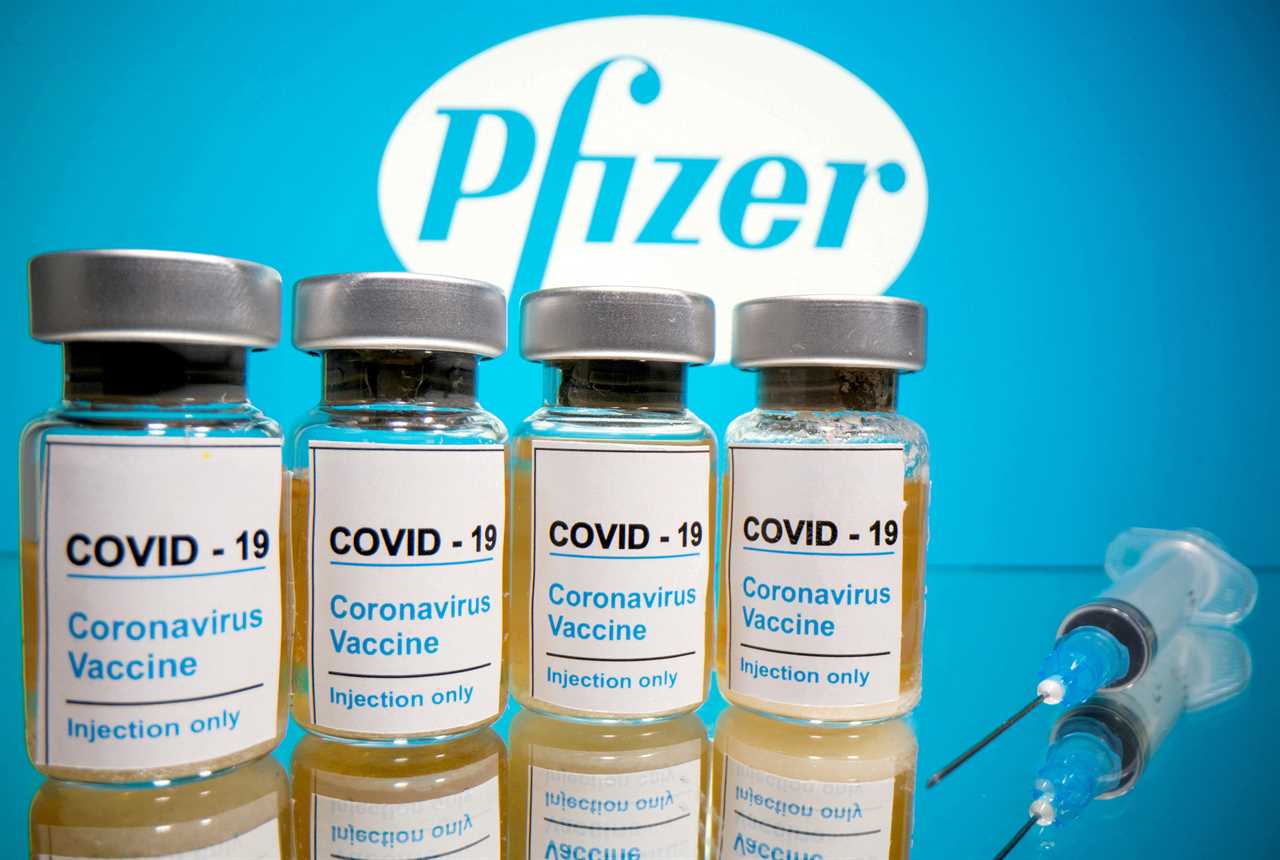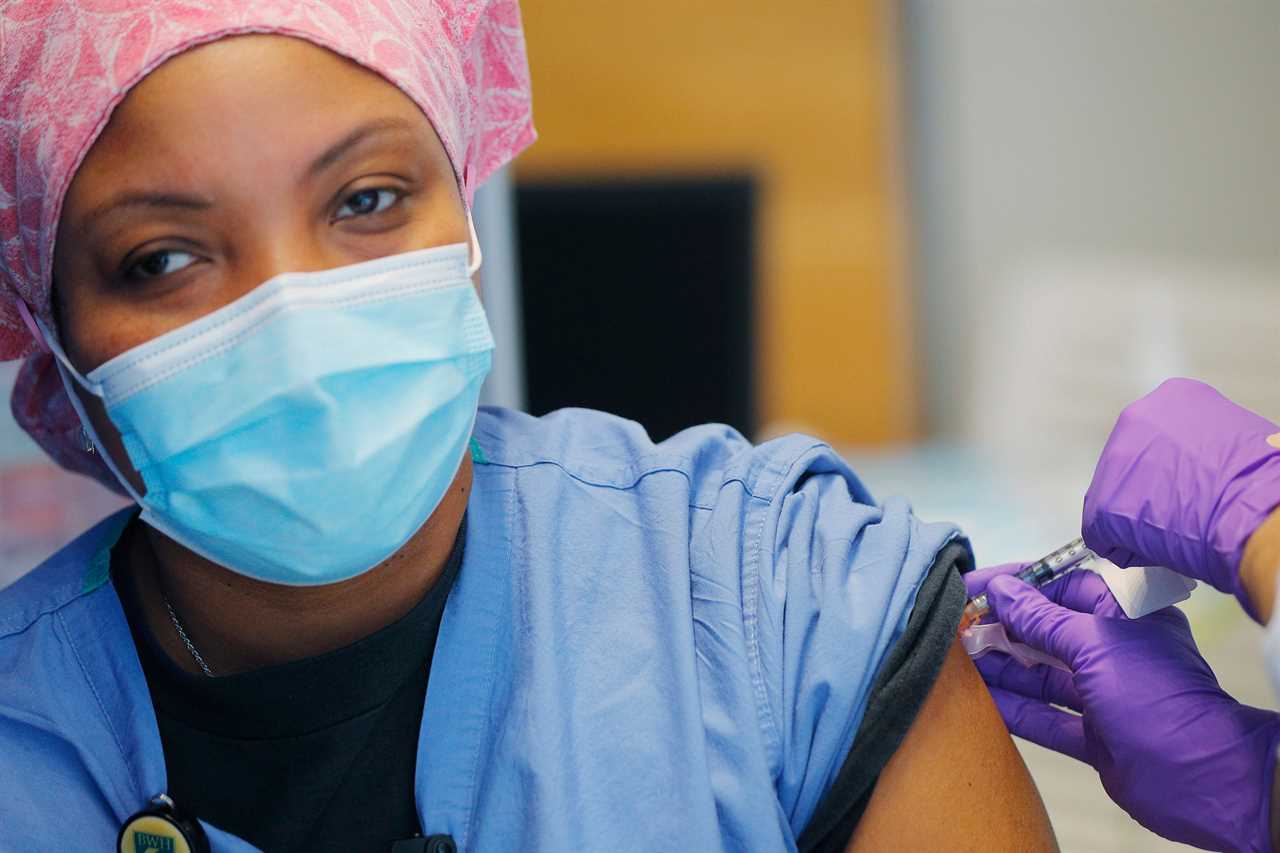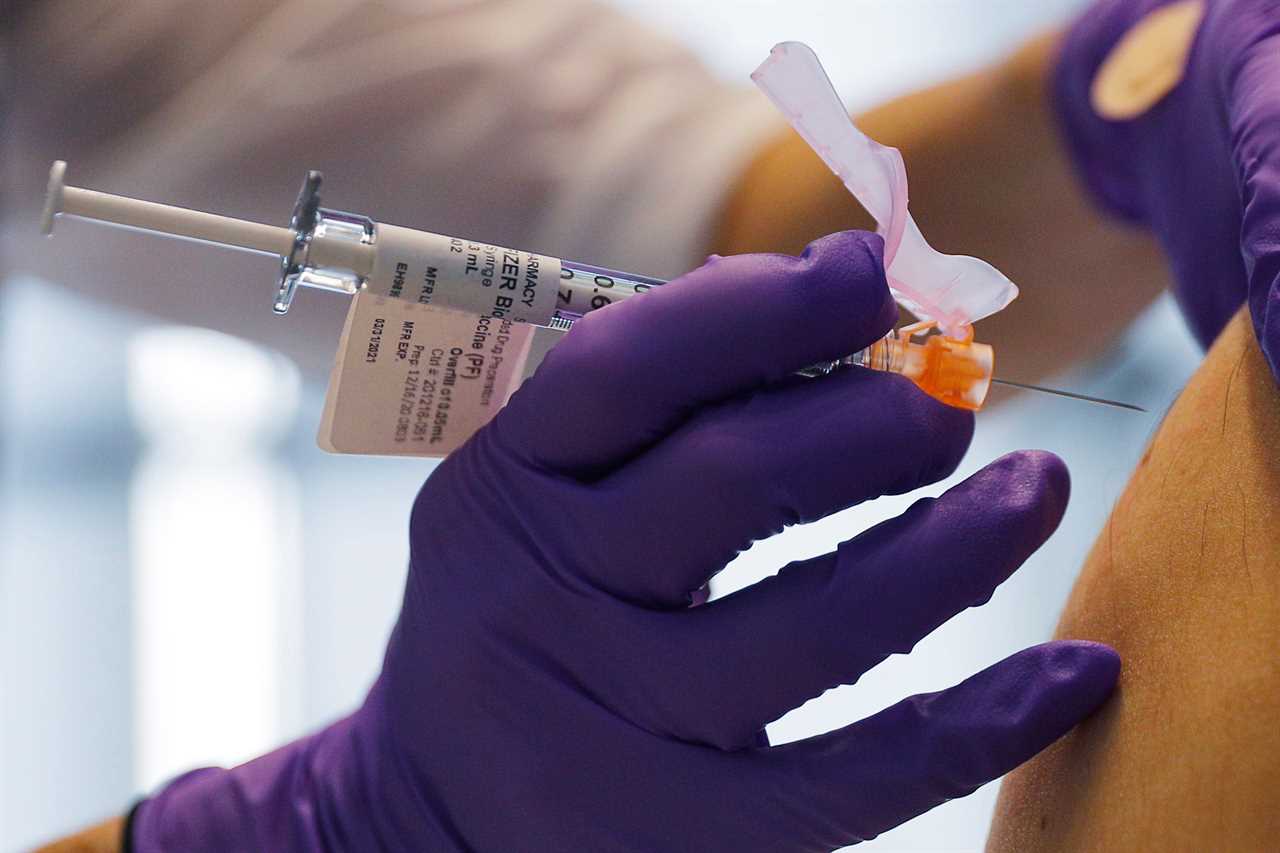TWO healthcare workers have suffered allergic reactions after receiving Pfizer’s coronavirus vaccine.
The medics in Alaska, United States, were treated immediately where they received their jab.

Both appear to have had no history of severe allergic reactions, suggesting they may not have been aware of existing allergies.
Pfizer has said it is “actively working with local health authorities to assess” the situation.
Prior to the vaccine roll-out in the US, the Food and Drug Administration (FDA) had advised people with allergies to consult with their doctors to make sure that they are not allergic to any of the component of the vaccine.
It follows UK regulators, the MHRA, to warn anyone with a history of “severe allergic reactions” to food, medicines or vaccines to refuse the jab.
Two NHS workers in the UK suffered an anaphylactic reaction to the vaccine last week, both of whom have recovered.
Anaphylaxis can be life-threatening, causing breathing difficulties, a fast heartbeat and confusion.
Symptoms usually occur within minutes or even seconds after exposure to a food or medicine, and so people who receive their jab are kept for around 15 minutes to ensure they are well.
Health officials have reassured events like these were not “unexpected” because the vaccine was new.
And Pfizer said the vaccine was “well tolerated” during the trials with “no serious safety concerns”.
It has been trialled extensively on thousands of people worldwide and been declared safe and effective for use.
But regulators in the UK will be studying people given the jab over time to make sure other side effects don’t appear.
Reactions came on within ten minutes
The first medic to suffer an allergic reaction was a middle-aged woman who was not aware she had allergies, the New York Times reports.
She had an anaphylactic reaction that began 10 minutes after receiving the vaccine at Bartlett Regional Hospital in Juneau on Tuesday.
A rash quickly spread across her face and torso, before her breathing and heart rate became rapid.
Doctors rushed her in to the emergency room where she was given a shot of epinephrine (adrenaline).
The woman, who has not been named, stabilised. But when doctors took her off medication, her symptoms would come back.


The NYT reports that the woman was moved to an intensive care unit where she was still staying on Wednesday night.
A man who received his Pfizer jab at the same hospital on Wednesday was the second worker to fall suddenly ill.
The man, whose age and name is unknown, developed eye puffiness, lightheadedness and a scratchy throat 10 minutes after the injection, according to a hospital statement.
He was also given epinephrine, among other drops, and was back to normal within an hour.
The workers were two of just 144 people given a vaccine dose that day.
But both bravely said they did not want their experiences to put others off getting the potentially life-saving inoculation.
Experts said the cases showed the hospital system was well equipped to spot any concerning symptoms in people once they had been given their jab.
But questions remain over what ingredient in the vaccine is triggering a response.
The Pfizer vaccine is genetic material, called mRNA, coated in a bubble of fat.
Dr Paul Offit, a vaccine expert and member of an outside advisory panel that recommended the FDA authorise the Pfizer vaccine, said the molecule protecting the genetic material is called polyethylene glycol.
It is considered a “leading contender” for triggering an allergic reaction, he said. But more tests are needed.






